A “Salty Intervention”
In February 2025, a Salt Watch volunteer visiting a gas station in Leesburg, Virginia stumbled upon a massive oversalting event. Having seen the consequences of such oversalting on waterways firsthand through Salt Watch monitoring, this volunteer was armed with the knowledge of what to do. They reported the event to Amy Ulland, who coordinates Loudoun Wildlife Conservancy’s stream monitoring program. Amy alerted other Salt Watch volunteers, asking them to send in a virtual request through the gas station company contact page with the address of the store asking to have the company sweep up the salt. Multiple volunteers sent in requests and explained that it was in the store’s best interest to do so—giving economic and environmental reasons to clean up the salt.
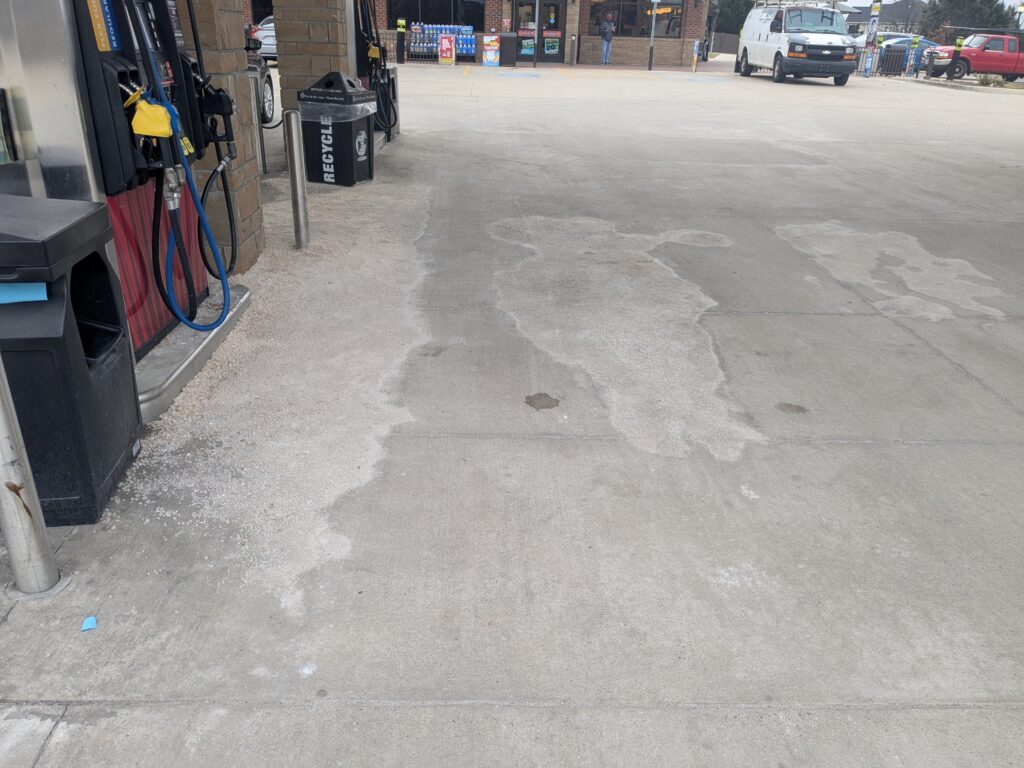

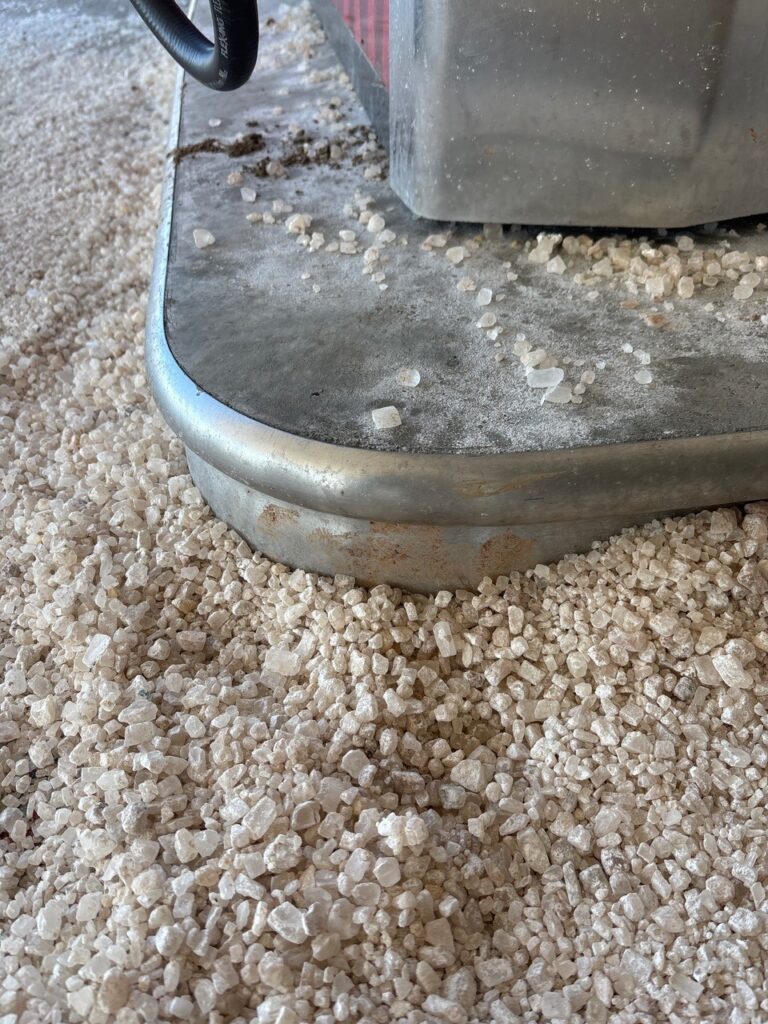
Amy also requested that any volunteers in the area stop by the gas station, educate the employees about the situation, and request them to sweep it up. At least two Salt Watch volunteers stopped by and had conversations with some of the employees about the excessive salt. The employees assured the volunteers that the piles would be cleaned up. In case they weren’t, Amy assembled a crew of a few volunteers to help the employees clean up the salt. This wasn’t necessary, however, as within 48 hours of the oversalting being reported, the salt piles were cleaned up by store employees. Employees swept and scraped up the salt and contained it to use sparingly during future storm events.
Kent Clizbe stopped by as a gas station employee was cleaning up the remaining salt and noted, “Amy asked for someone to take a look at the situation in the early afternoon, before she and some others planned to go to the gas station to clean up [the salt]. I stopped by at about 1:30pm. Checking around the pumps, where Amy had reported the excess salt to be, I didn’t find any.”
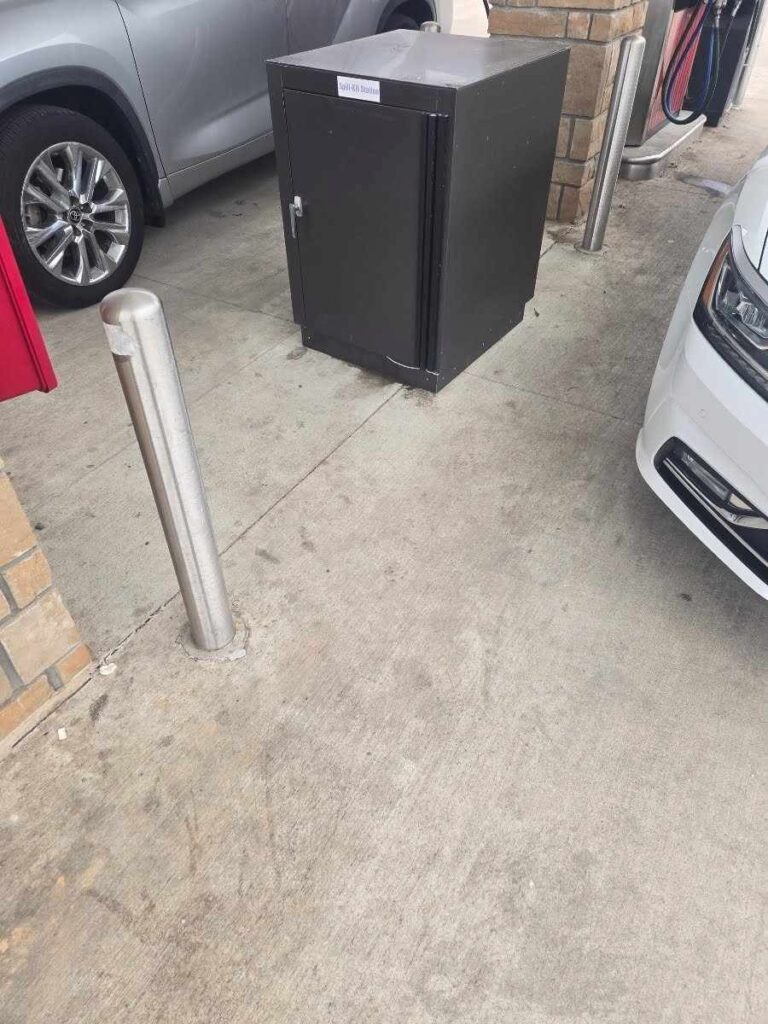
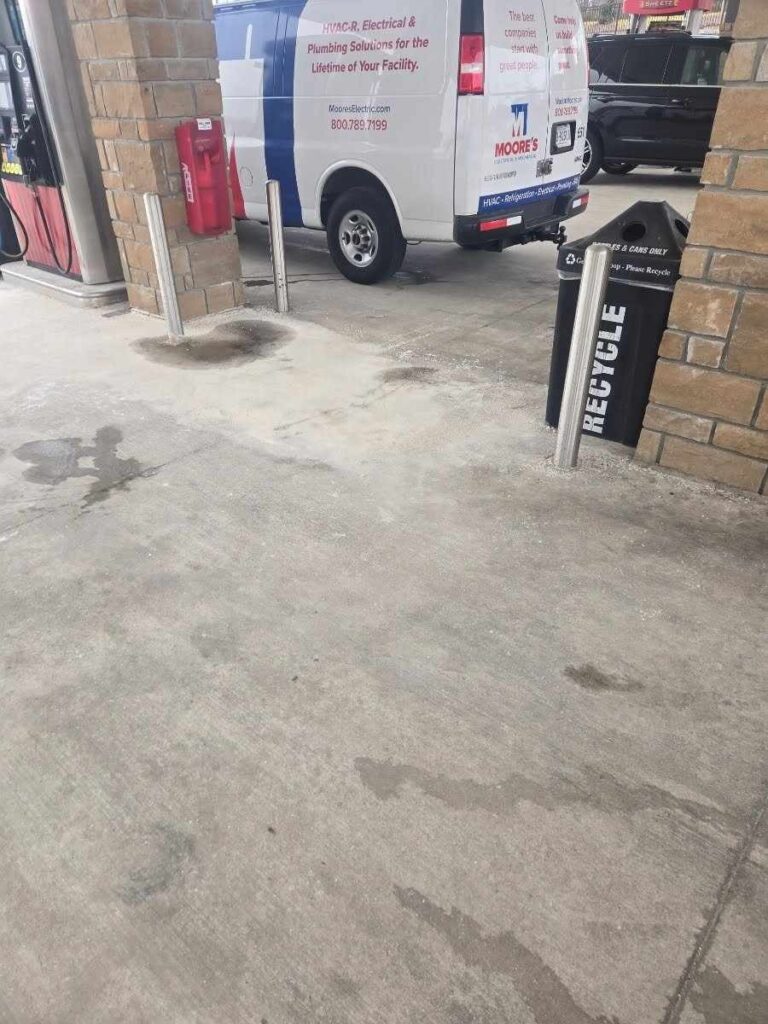
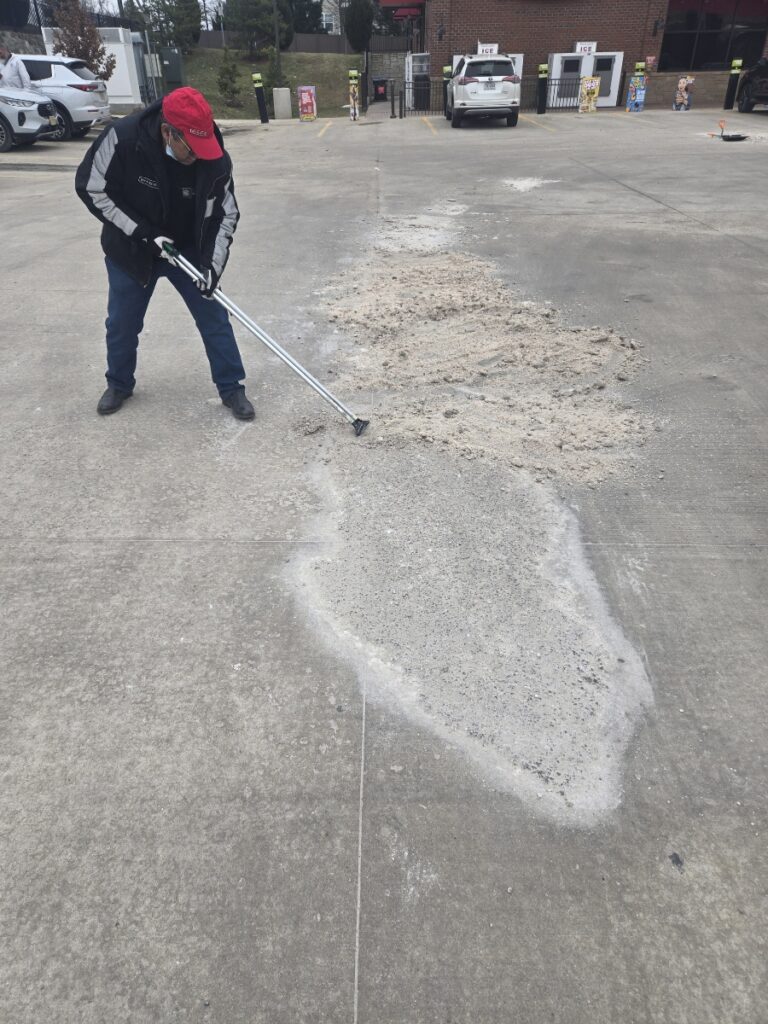
“There were a couple of traffic cones blocking off a small section in the parking lot away from the pumps. A worker in the gas station uniform was scraping another section of the lot, not near the pumps.
I chatted with the worker. His name was Zahir. He told me that the staff at the gas station had been working on the salt spills, because “someone from the county” had visited recently. The staff didn’t realize that salt could be an issue for our water. I explained that run-off from the parking lot would end up in the nearby creeks, then in the Potomac, and that it was unhealthy for the waterways and the plants and animals that lived in them. He was interested in hearing this and said that he would be sure that after this salt was cleaned up, they’d pay attention to excess salt in the future.
Zahir was working on large patches of salt that had been compressed and dried to the consistency of cement. It was hard work to scrape this compacted salt off the parking lot. He finished with the scraping before I left. He told me they’d sweep up the salt, put it in bins, and save it for next time it was needed.
I thanked Zahir and asked him to thank his colleagues for their consideration of our environment. He said that it was important to keep the environment healthy for people, animals and plants.
Overall, it seems that we had a successful ‘salt intervention!’”
Special thanks to Loudoun Wildlife Conservancy Salt Watchers: Harrison Crecraft, Nan McCarry, Scott MacDonald, Bruce Adams, Kent Clizbe, and others who sent in notes to the gas station. Also, thanks to Taylor and Zahir, the employees who worked to clean up the salt!
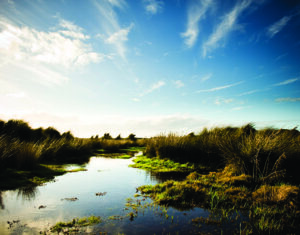
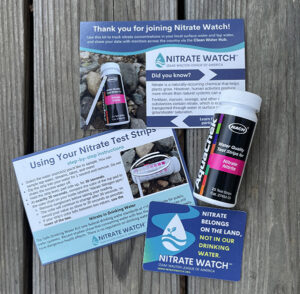 Your kit will include a bottle containing 25 nitrate test strips which you can use to test your water source(s) throughout the year. You’ll also receive postcards explaining how to use your nitrate test strips and how to share your Nitrate Watch results on the Clean Water Hub.
Your kit will include a bottle containing 25 nitrate test strips which you can use to test your water source(s) throughout the year. You’ll also receive postcards explaining how to use your nitrate test strips and how to share your Nitrate Watch results on the Clean Water Hub.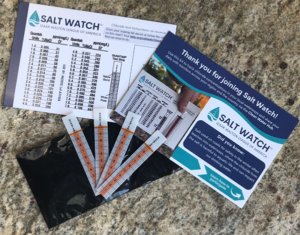 Your kit will include four test strips so you can test your waterway throughout the season. You’ll also receive a chart to help you interpret your results and a postcard with instructions for completing a Salt Watch test and reporting your findings.
Your kit will include four test strips so you can test your waterway throughout the season. You’ll also receive a chart to help you interpret your results and a postcard with instructions for completing a Salt Watch test and reporting your findings.